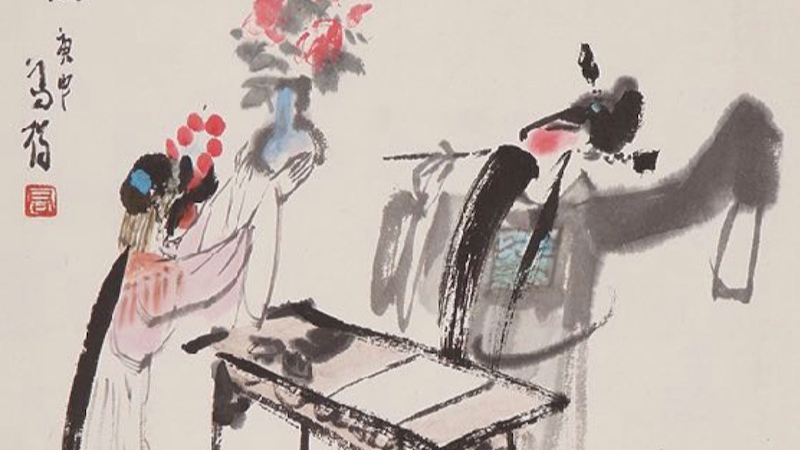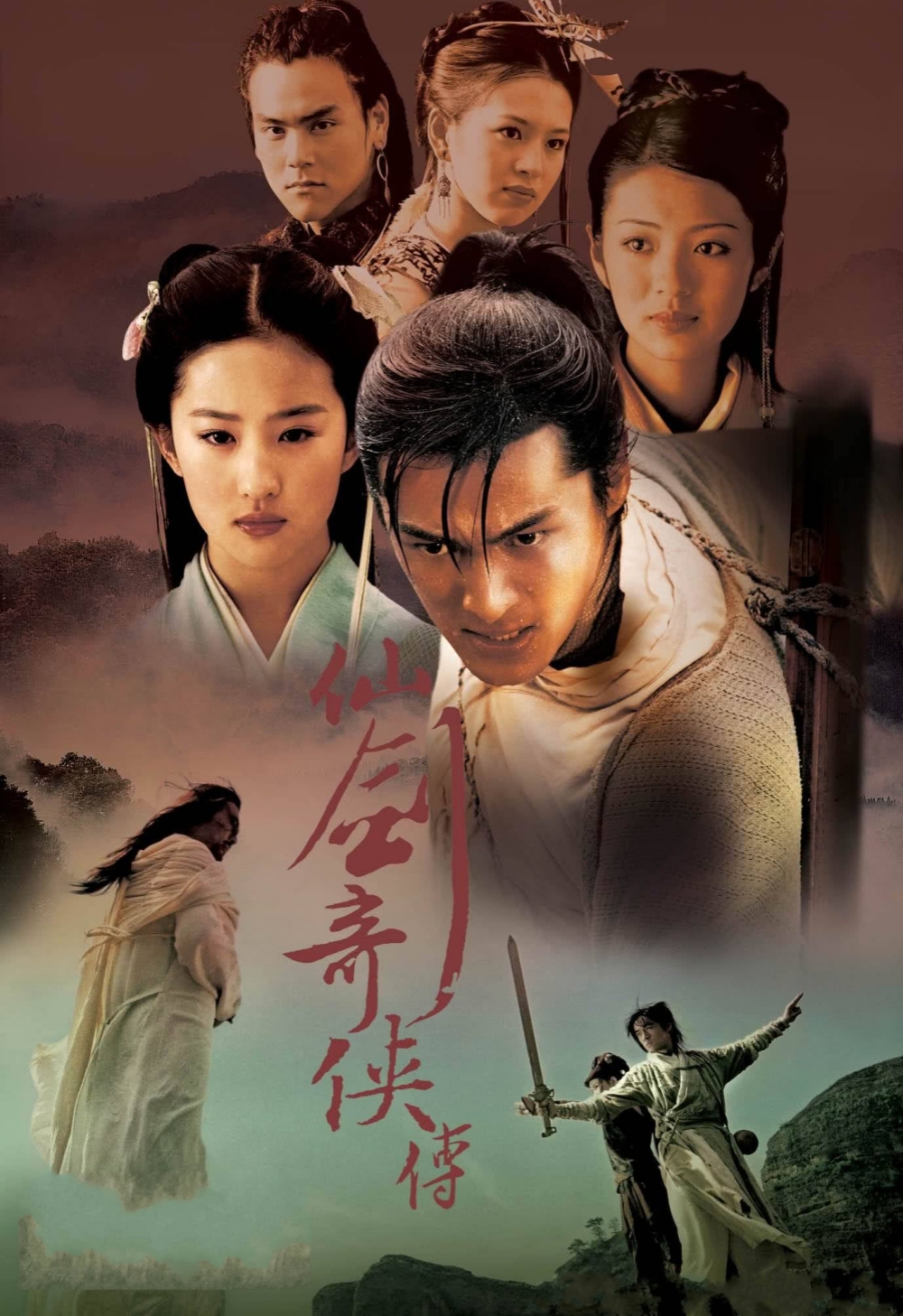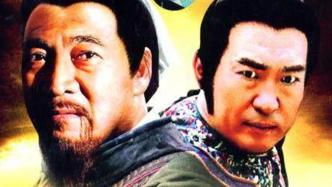
Editor's note: This is a nostalgic theater.
1982 was undoubtedly the year of the rise of martial arts films in mainland China. Shandong TV Station put Wu Song, the tiger-fighting hero who has been passed down in folklore for nearly a thousand years, on the screen for the first time, and took the lead in launching "Wu Song of the Water Margin". This means that Shandong Film and Television has not only opened the prelude to the Shandong version of "Water Margin", but also opened a new era of remakes of the four famous works.
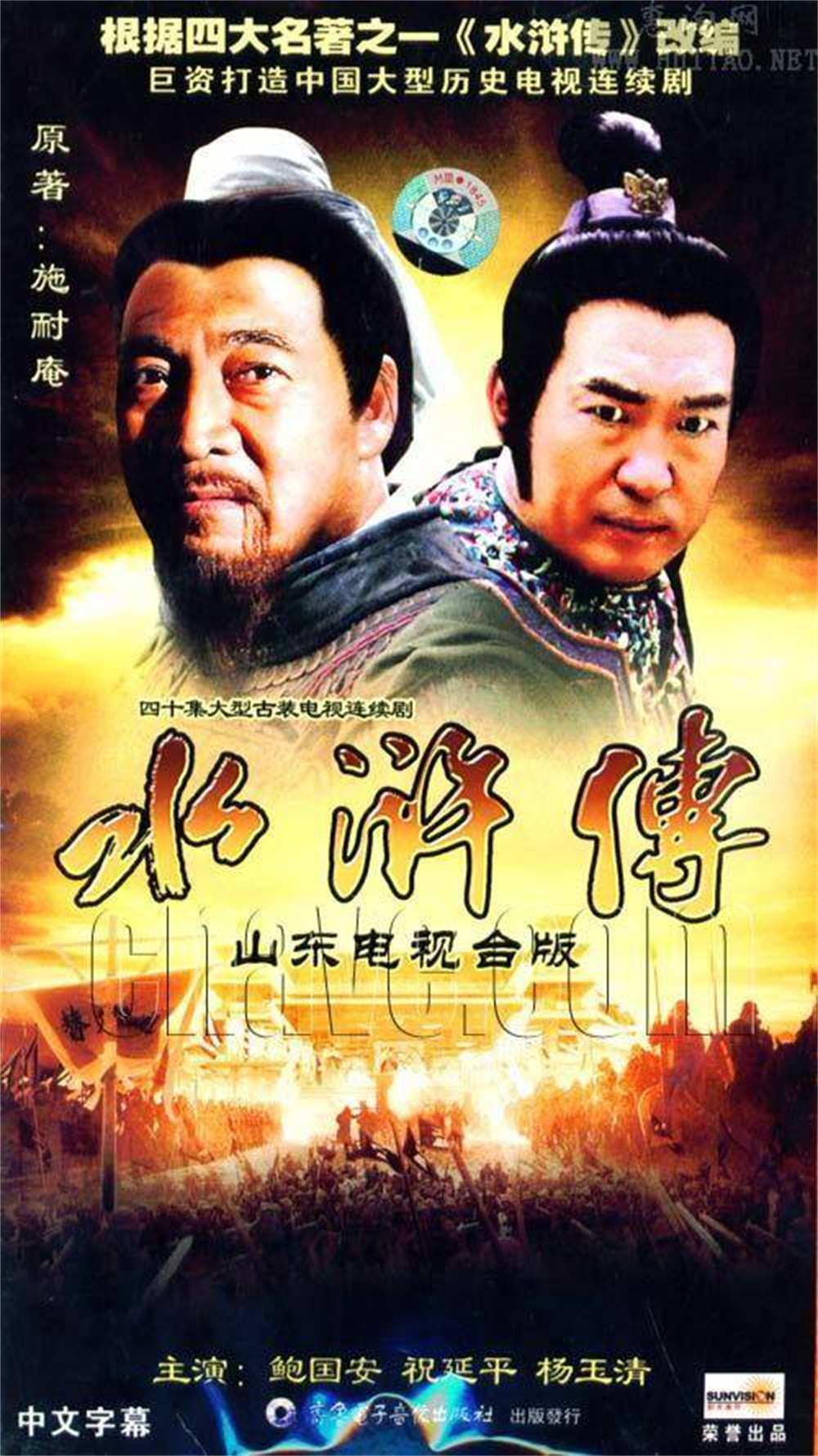
Shandong version of "Water Margin" poster
The filming process of the Shandong version of "Water Margin" can be said to be a step-by-step process, slowly bringing the novel's story to the screen. It all started in 1979 with the first national meeting of directors of television stations. That year, to celebrate the normalization of diplomatic relations between China and Japan, a Japanese "Water Margin" was played at the meeting. Jin Zhao, who was in charge of Shandong TV Station at the time, thought that the magic reform was serious after watching it, and the image of the hero was distorted. After returning to Shandong TV Station, he immediately discussed with his colleagues on the filming of "Water Margin". At that time, the great work "Water Margin" was going to be made into a TV series, and the human and financial difficulties can be imagined. So, they changed their strategy and shot in the form of character units. The first one is Wu Song, a super popular tiger fighting hero in Shandong.
In the martial arts films of the 1980s, most of the actors and other crew members had martial arts skills. The same is true for the crew members of "Wu Song". Zhu Yanping is a native of Feicheng, Shandong, and a martial arts student of Jinan Nanjing Opera Troupe. Zhu Yanping, with a square face, thick eyebrows and big eyes, and a burly figure, is the one who best fits the original novel. In the original book, Wu Song is a burly muscular man, "with a dignified body and a dignified appearance. His eyes are staring at cold stars, and his eyebrows are like lacquer paint. His chest is broad, and he has a majesty that is invincible... His bones are strong and his muscles are strong, like shaking the ground." Pixiu is here." Martial arts designer Yu Chenghui is from Penglai, Shandong, and another martial arts designer Qiu Fangjian is his fellow apprentice. They also took on the roles of the show. Qiu Fangjian plays the martial arts youth who was killed by Jiang Menshen, and Yu Chenghui plays Zhang Tuanlian who framed Wu Song.
Most of the TV dramas back then were watching one step at a time, crossing the river by stepping on stones. This is the case with "Wu Song". At the beginning, the crew only filmed three episodes, "Drunk and Beat Jiang Menshen", "Trapped in the Dujian Mansion" and "Blood Splattered Mandarin Duck Tower". These three episodes mainly tell the story of what happened after Wu Song was dispatched to Mengzhou, so the TV series was not called Wu Song at first, but was released under the name of the three-episode ancient costume TV film "Wu Song Fa Pei".

"Wu Song Hair Match"
"Water Margin" is a novel in the old society, and among heroes, loyalty is more important than benevolence and justice. Among them, the loyalty of the rivers and lakes only asks about motives, not right and wrong; only asks about closeness, not about reason. Many heroes in the original book, such as Wu Song and Li Kui, often kill innocent people. Not to mention being incompatible with the spirit of the modern rule of law, it is also inconsistent with the traditional Confucian moral values. The screenwriter deleted the bloody part of the murder and added Wu Song's image of justice for democracy.
The origin of "drunk beating Jiang's door god" is that Jiang Zhong robbed Shi En's happy forest. In the original book, the fight between these two people is all for the sake of collecting protection fees for passing businessmen and travelers, and there is no distinction between who is good and who is bad. Wu Song gave Shi En a head start because he received good wine and meat in return for Shi En. In the TV series, Shi En sued Wu Song, claiming that Jiang Zhong not only bullied himself, but also bullied the whole city. After that, Wu Song beat Jiang Zhong hard, which became a righteous act to eliminate harm for the people.
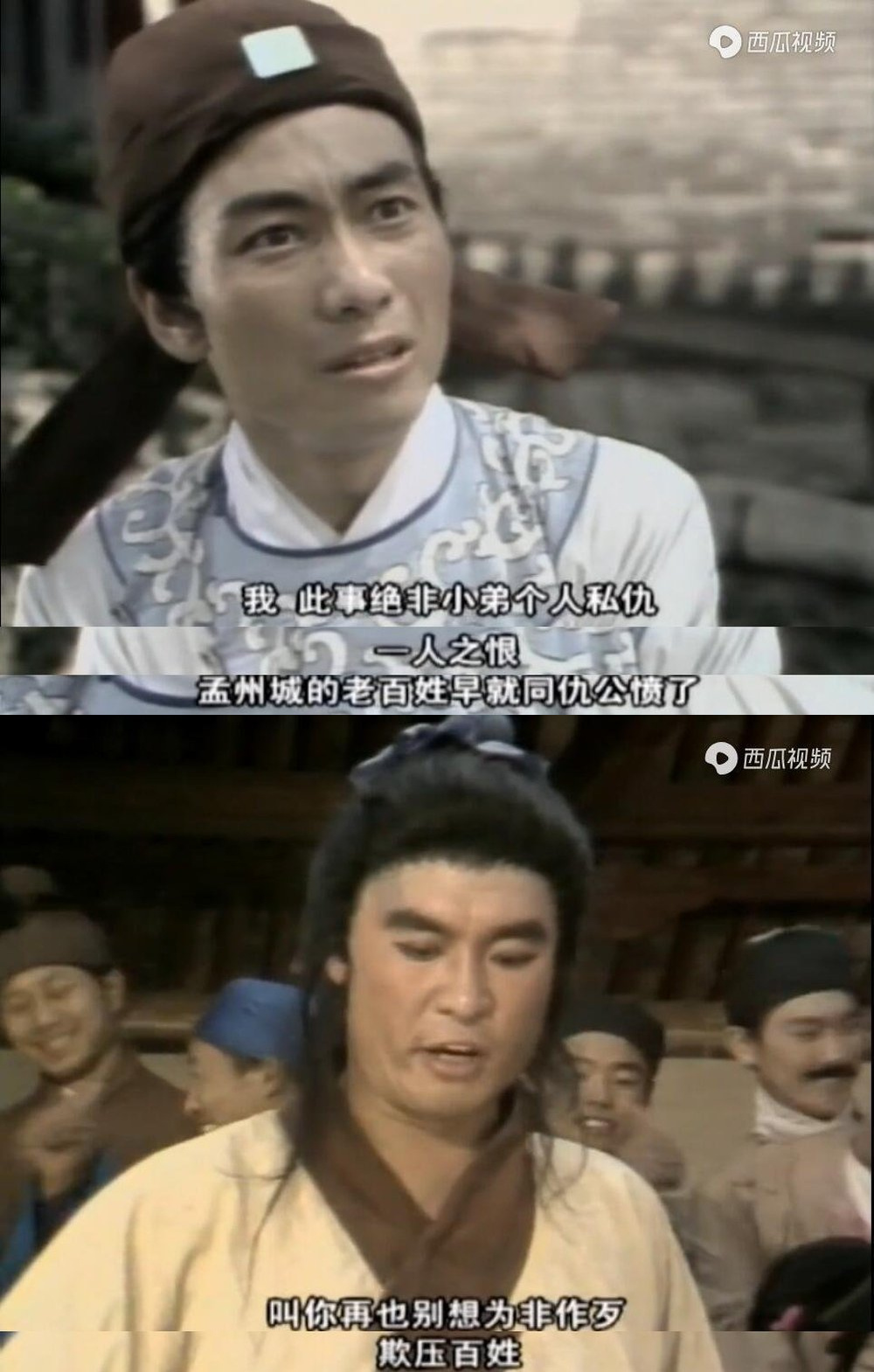
Snatching Happy Forest and Turning into Eliminating Harms for the People
Wu Song is most criticized for the murder in "Blood Splattered Mandarin Duck House". In the original book, in order to retaliate against Zhang Dujian, he "doesn't do anything, and he doesn't stop. He killed a hundred of them, and it was just this death." In addition to Zhang Dujian, Zhang Tuanlian, Jiang Zhong, etc., there are also Zhang Dujian's wife and children Many innocent people were killed, including the nurse, the nanny, and the adoptive mother Yulan who sang the song. "A total of 15 men and women were killed, and six pieces of gold and silver wine vessels were taken away." The part of Wu Song's indiscriminate killing of innocents was deleted in the TV series, and he let go of two innocent maidservants. The screenwriter also set Zhang Dujian as the mother-killing enemy of adoptive mother Han Yulan. Yulan has a real admiration for Wu Song, and the ending is resolved to commit suicide by jumping off the building without dragging Wu Song. Wu Song was angry but did not lose his mind. This is the real hero.
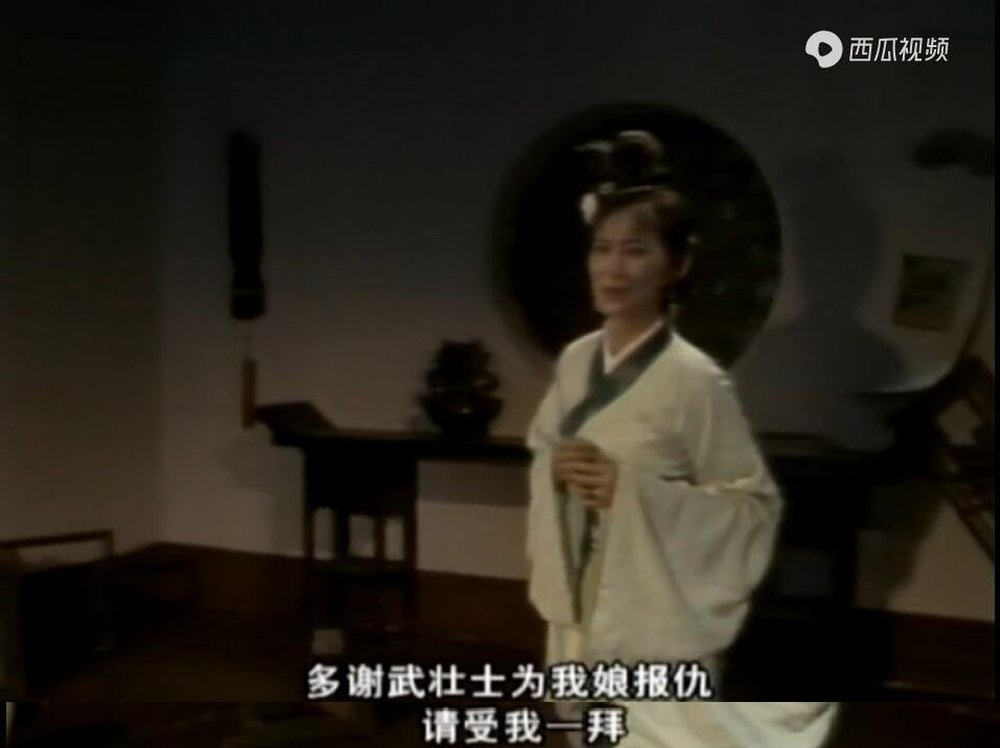
"Blood Splattered Mandarin Duck Building" was changed to eliminate harm for the people
After "Wu Song Fabian" was broadcast on Shandong TV, it was immediately welcomed by the audience in this province. At that time, most of the TV stations were not satellite TV, and many TV stations from other provinces called and asked to broadcast it on local TV stations. Beginning in June 1982, on the basis of the existing three episodes, Shandong TV Station filmed "Jingyanggang Fighting the Tiger", "Brothers Say Goodbye", "Fighting and Killing Ximen Qing" before being dispatched to Mengzhou and "Fighting Ximenqing" after dispatching Mengzhou. "Two Entering the Cross Slope" and "Erlong Mountain Gathering Righteousness" finally formed the eight-episode complete story "Wu Song of the Water Margin".
The eight-episode version of "Wu Song" began to launch TV series under the name of Water Margin. The prologue has quite ancient elements. The opening title is an ancient thread-bound edition of "Water Margin" in Ming Rong Yu Tang's engraved version slowly opened, and the two calligraphy characters "Water Margin" are typed. Rongyutang was a well-known bookstore in Hangzhou during the Wanli period of the Ming Dynasty. It is famous for engraving operas and novels. As far as the Water Margin is concerned, the character illustrations in "Ming Rong and Tang Printed Version of the Water Margin" are considered to be the most representative.
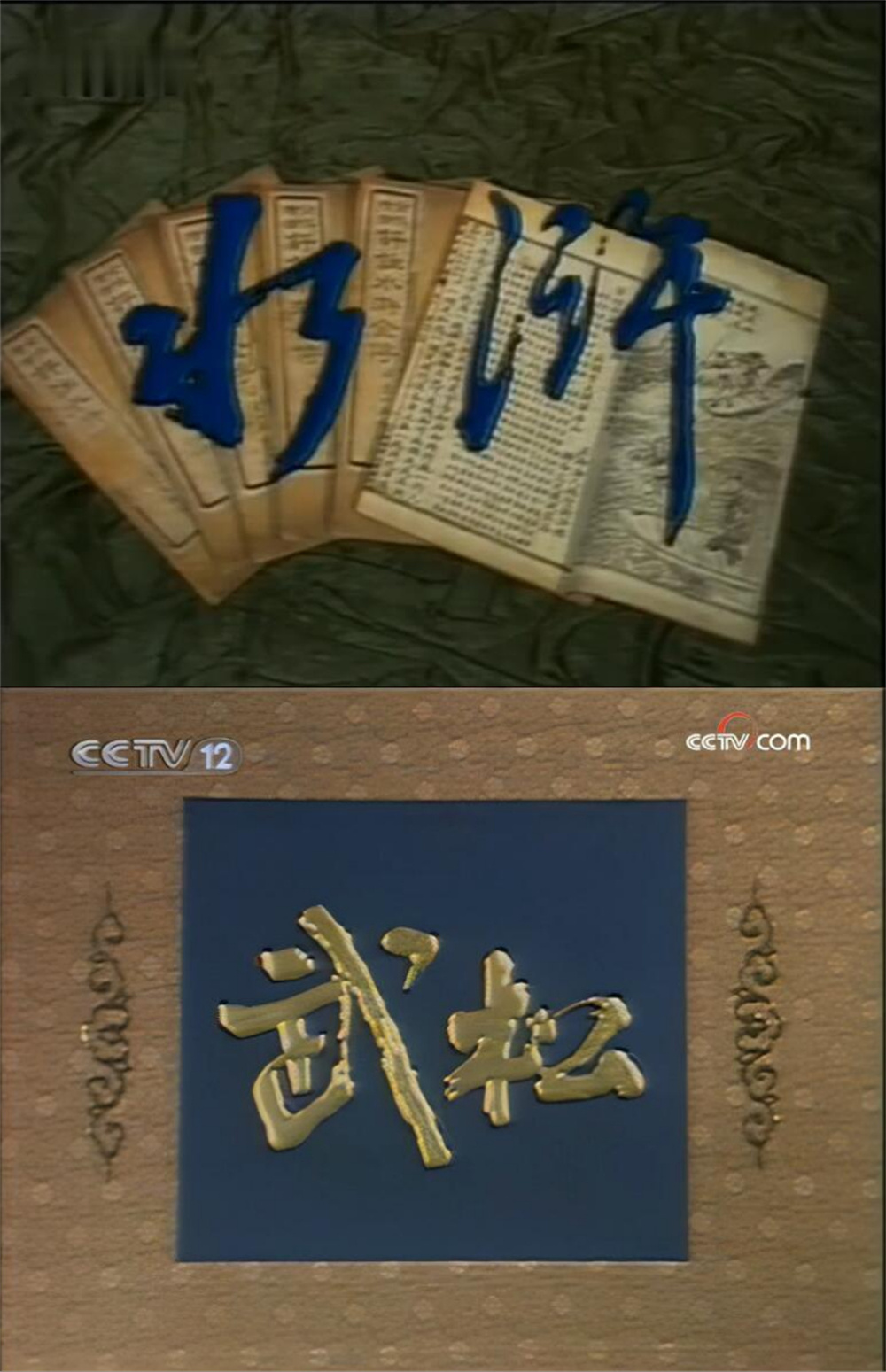
The opening title of the single version of "Wu Song"
The opening music also has a strong Shandong flavor. When the word "Water Margin" was typed, it was accompanied by the high-pitched and resonant suona solo "A Flower". Combining the opening titles of "Ming Rong and Tang's Outlaws of the Marsh" and Suona's "A Flower", many viewers consider it to be the most ancient TV series title of the Water Margin so far.
"A Flower" is not only used in the opening title, but also used in Wu Song's highlight moment - fighting a tiger in Jingyanggang, which is used to express the bloody fighting scenes and the passionate and generous Wu Song spirit. "Wu Song" also used other classic classical music, such as fighting Ximen Qingshi, and the background music was "General Order", which was later widely known from the "Huang Feihong" series of movies. The ending of "Wu Song" is joyful, and the martial arts practitioners defected to Lu Zhishen and Yang Zhi joined the gang, forming a scene of the seven heroes of Erlong Mountain gathering together, and a scene of all heroes beaming with joy.
The TV series "Wu Song" won the first China TV Golden Eagle Award, and Zhu Yanping won the first China TV Golden Eagle Award for Outstanding Actor for his role as Wu Song. "Wu Song" became popular all over the country. Since then, Shandong TV took advantage of the heat and filmed a series of Water Margin dramas such as "Lu Zhishen", "Lin Chong", "Li Kui", "Song Jiang", "Chao Gai" and "Gu Dasao". Later, Shandong TV released a co-edited version, which produced forty episodes of " Water Margin " through re-editing. In 2010, Shandong TV re-edited the TV series and changed its name to "Water Margin".
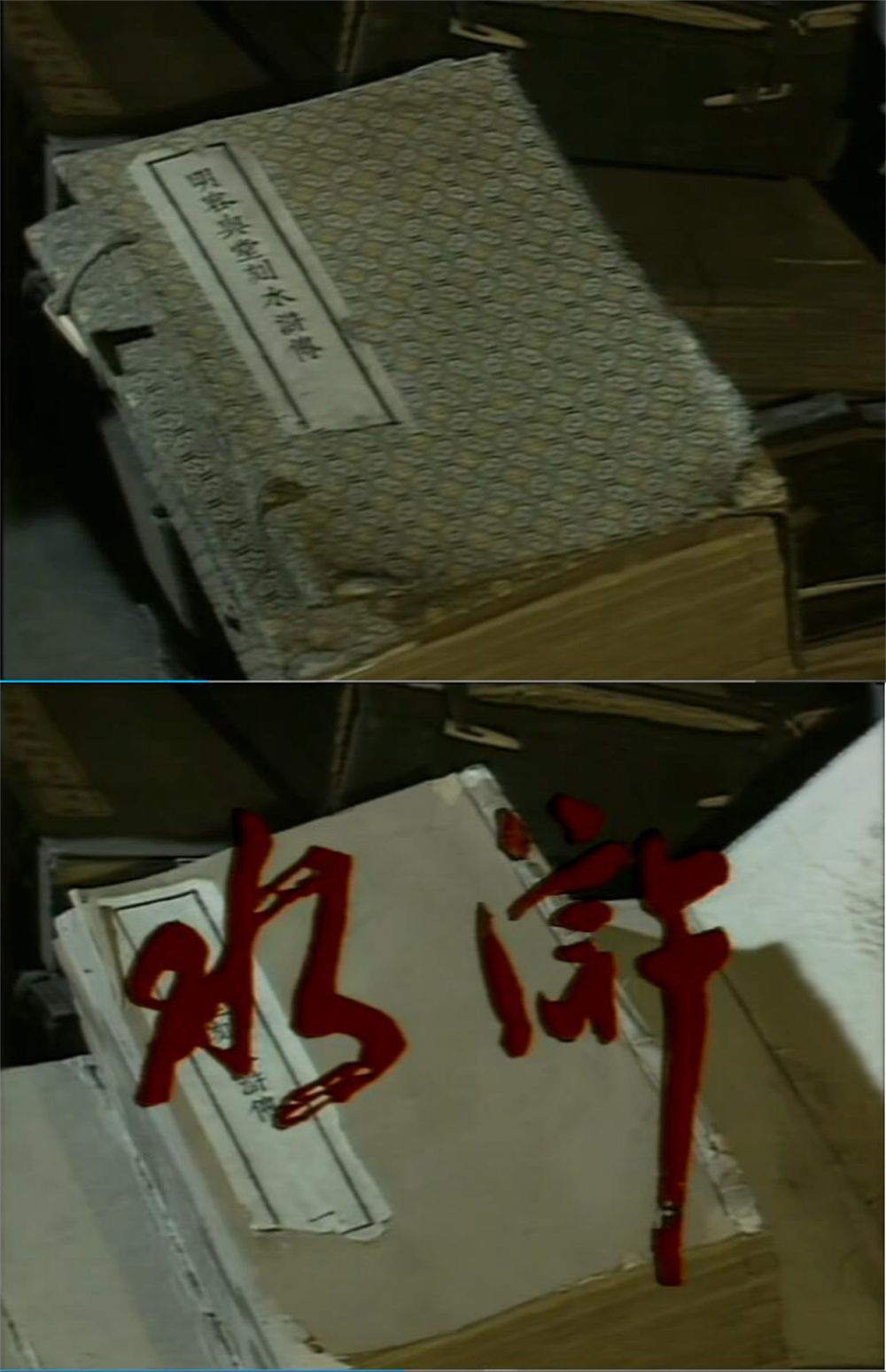
Co-edited version of "Water Margin" title
The subsequent casts basically fit the characters. For example, Yu Shoujin, who was born as a weightlifter, fits the image of Lu Zhishen as a powerful monk; Ding Rujun, who plays Lin Chong, is imposing and elegant. The martial arts plot did not disappoint the audience. In the episode "Lin Chong Running to Liangshanbo at Night", the scene of Lin Chong and Yang Zhi's contest can be called a classic simple knife fighting scene, and at the same time it has the feeling of a comic book in the 1980s. Lin Chong's attack on Yang Zhi missed, and he immediately changed to a sweep. There is no fancy tricks in operas, it's just tricks and tricks. Dong Ziwu's Li Kui reproduced well-known scenes such as the fight against Zhang Shun in water, the robbery of the court in Jiangzhou, and the killing of the four tigers in Yiling.
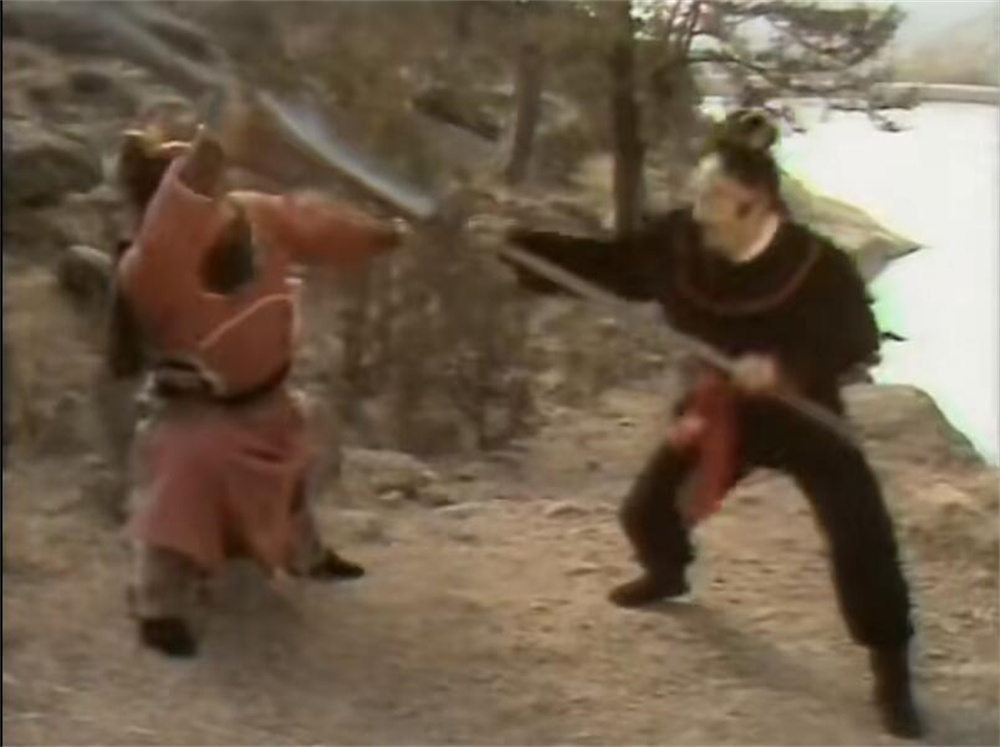
Lin Chong fights Yang Zhi
The Shandong version of "Water Margin" is composed of short series of character annals, with different parts and even actors. The "Lin Chong" unit is played by Wang Binlai. In the "Chao Gai" unit, Wang Bin played Ruan Xiaoqi and Liu Yulin played Wang Lun. In the "Li Kui" unit, Song Jiang is played by Yang Yuqing. Although he appeared in six episodes, they were all supporting roles. In the "Song Jiang" unit, Song Jiang is played by Bao Guoan as the protagonist.
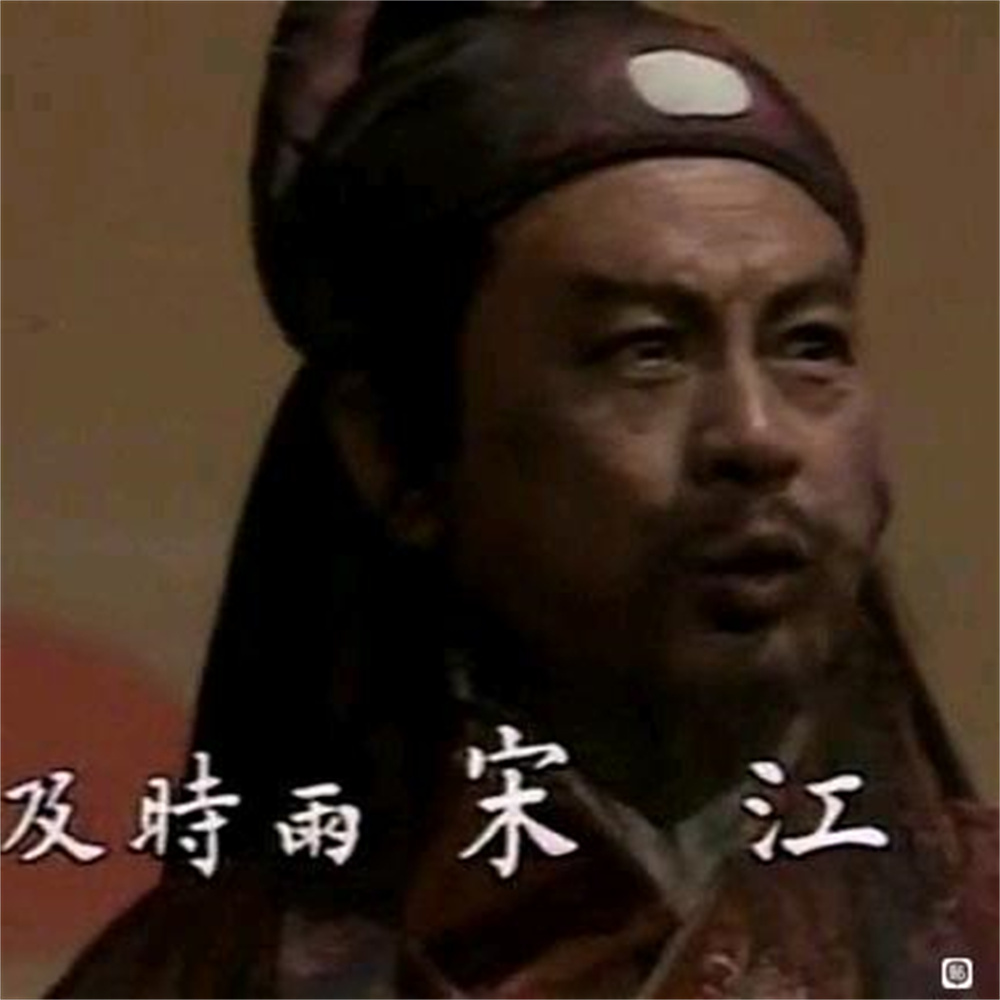
Yang Yu asked Song Jiang
Song Jiang is the number one male in the original book. He was born as a small official, and he is a character with complex and contradictory characters. Song Jiang in the original book is a capitulator who has fantasies about Song Huizong. He only opposes corrupt officials, not the emperor. The Shandong version departs from the original tone of surrender. In the episode "Liangshan Qiao Breaks Huazhou Mansion", the story of Song Jiang meeting and talking with Su Taiwei is added. On the one hand, Song Jiang stated that he could accept the recruitment, but he also declared to Su Taiwei that "the emperor is not the first" and put "the people" above the "emperor". This also reflects the Confucian tradition in Shandong. The Yasheng Mencius once had a famous saying that "the people are the most important, the society is second, and the king is the least".
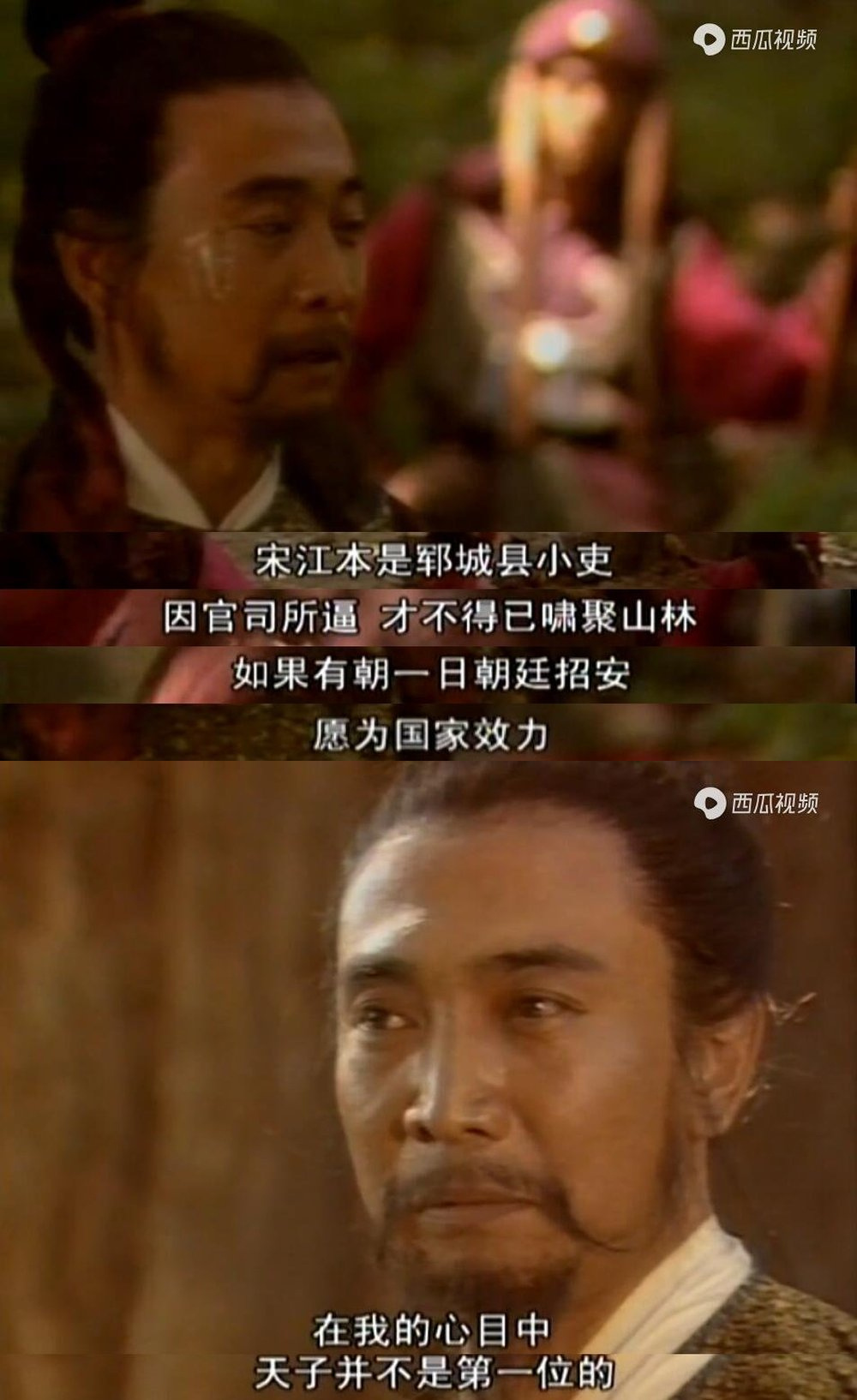
Put the first place for Tianxingdao
Bao Guoan's Song Jiang embodies loyalty and arrogance, even a bit of Cao Cao's domineering. Since most people were too impressed with the Shandong version of Song Jiang, many viewers later thought that the CCTV version of Song Jiang was hideous. The CCTV version of "Water Margin" followed the line of respecting the original work. Song Jiang was labeled as a "surrenderer" from the very beginning. Gao Qiu, who framed Lin Chong and others, took care of him in every possible way. Different from the tragic ending in the novel, the Shandong version of "Water Margin" only filmed the 73rd chapter of the original work. The whole play ends with the happy scene where Li Kui catches the fake Song Jiang.
The Shandong version of "Water Margin" is undoubtedly a TV series that will be recorded in history. It is the first time that the four famous works have been adapted into a large-scale classic historical series. At the same time, it is also the first work that caused a national sensation among many TV series adapted from classical literature.
